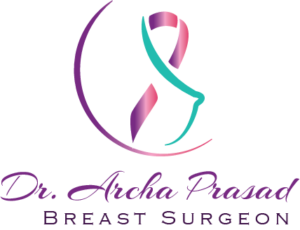PART 1 : COPING AFTER A DIAGNOSIS

Emotions to Expect After Being Diagnosed with Breast Cancer
A diagnosis of breast cancer can trigger a range of emotions, and there is no right or wrong way to feel.
You may experience feelings of fear, shock, anger, disbelief, sadness, or numbness.
It’s also normal for these emotions to fluctuate throughout the day or over time.
The days and weeks following your diagnosis can be particularly overwhelming, but many people find comfort in having a treatment plan in place, which can help alleviate anxiety and promote a sense of calm.
Things you can try that will help you cope

- Reflect on How You Coped with Past Trauma or Stress – You may find it helpful to revisit previous coping methods you have used in the past
- Consult with Your Breast Care Nurse – They can help you understand your diagnosis and treatment options, as well as provide support during and after treatment
- Be Kind to Yourself – Taking time to rest, eat healthily, stay active, and engage in activities you enjoy can be beneficial
- Share Your Feelings with Family and Friends – Discussing your cancer with loved ones can be a way to process what has happened and cope with the experience
Coping with Overwhelming Emotions Following a Cancer Diagnosis

Experiencing feelings of being overwhelmed is a common and normal reaction following a cancer diagnosis.
It can be difficult to focus and carry out daily tasks, and some people might even experience physical symptoms such as lack of appetite, diarrhea, or sleep disturbances.
If you’re struggling to cope with these emotions, it’s important to reach out for help.
Consider talking to your GP, who can offer support and medication to alleviate these symptoms in the short term.
Managing Stress and Anxiety After A Breast Cancer Diagnosis

A diagnosis of breast cancer can trigger feelings of stress and anxiety, which can be difficult to cope with. While some may experience anxiety for the first time, others might find that their previous anxiety is now exacerbated by the diagnosis. However, there are steps that can be taken to reduce anxiety and stress levels. These include:
- Distraction: Focus on other things around you, hobbies, or interests that can help to block out negative thoughts.
- Relaxation, Visualization, Mindfulness, and Meditation: These techniques can be employed individually or in combination to reduce tension and stress.
- Exercise: Regular physical activity, such as yoga or brisk walks, can help to clear the mind and reduce stress levels.
- One-to-One Counseling: By discussing emotions such as anger, anxiety, and grief related to the cancer diagnosis, it can be easier to understand and manage them.
- Cognitive Behavioral Therapy (CBT): This can assist in modifying patterns of thinking and behavior that may be hindering progress.
If you think these techniques may be beneficial, consult with your breast care nurse or GP to learn how to access them.
Telling family and friends

Sharing news of your breast cancer diagnosis with family and friends can be an emotional and challenging experience. It is natural to worry about their reactions and responses, as they may struggle to find the right words to say.
Deciding who to tell and how to tell them is a personal decision, and it is important to take your time and approach the conversation in a way that suits you. Consider starting with the basic facts about your diagnosis and treatment options, and let the conversation unfold naturally.
If you find it difficult to talk face-to-face, you might find it helpful to send an email or letter first, and then follow up with a conversation later. Alternatively, you could create a private group on social media platforms like Facebook or WhatsApp to update everyone at once and avoid repeating the same information multiple times.
Remember to be clear about who you want to share the news with and who you would like to keep it private.
Telling children

If you’re a parent, discussing challenging situations with your children, especially younger ones, can be a daunting task.
Honesty is usually the best policy, as it can be less scary for them to comprehend what’s happening, even if they can’t grasp it completely.
Talking to your employer

When it comes to discussing your diagnosis and treatment with your employer, it’s completely up to you. The amount of information you share with colleagues is a personal choice.
However, any information you provide should be kept confidential and only disclosed with your permission.
It’s important to note that your employer is responsible for making reasonable accommodations to your role or work environment to support you in your job.
If you choose not to inform them of your diagnosis and treatment, it may be challenging for them to determine what changes need to be made to better assist you.


